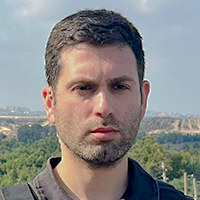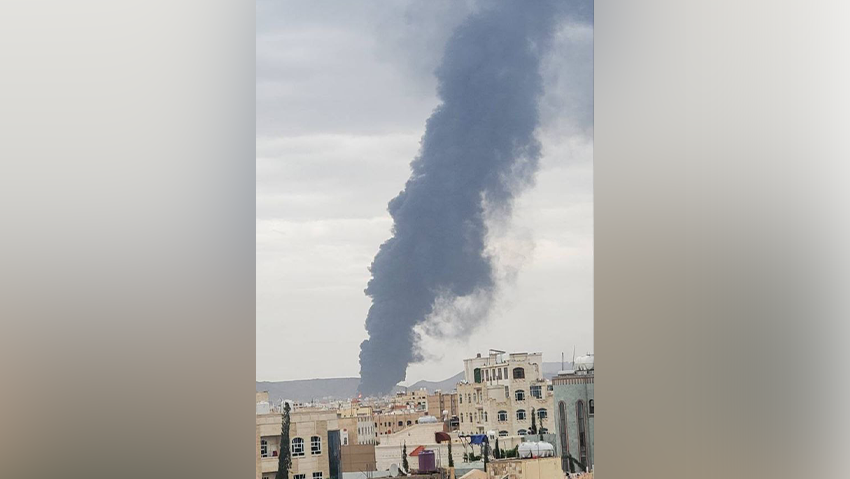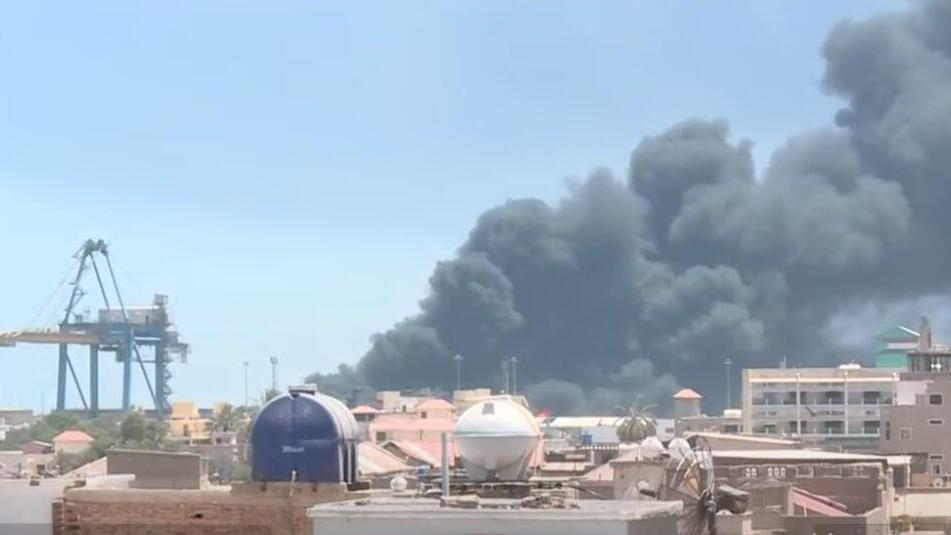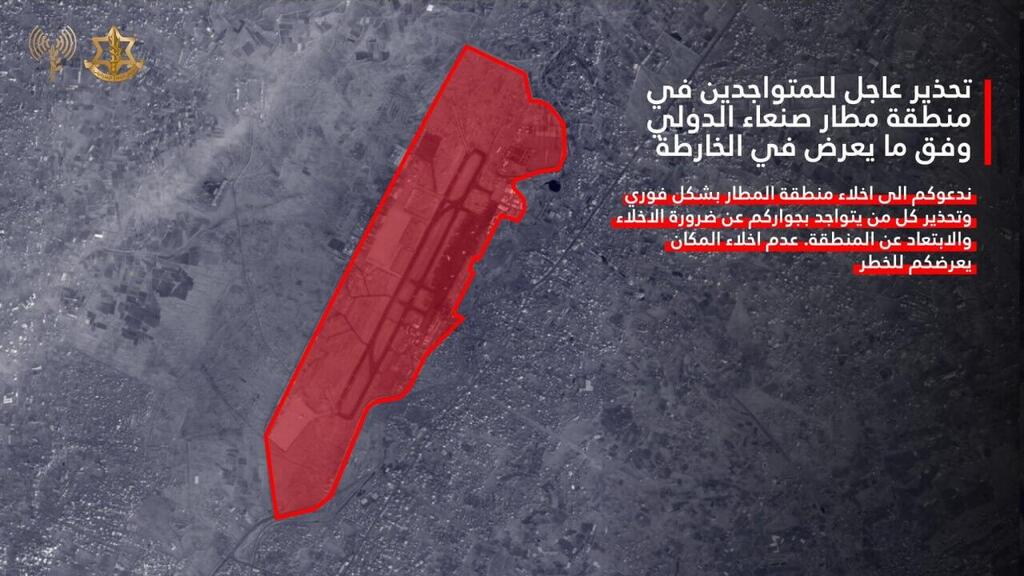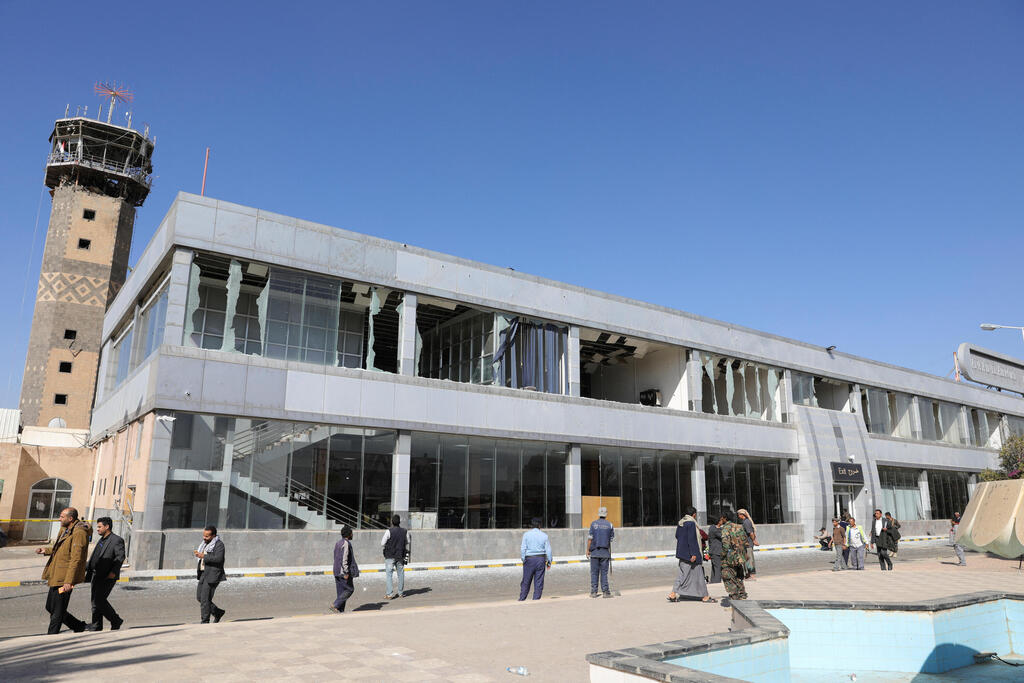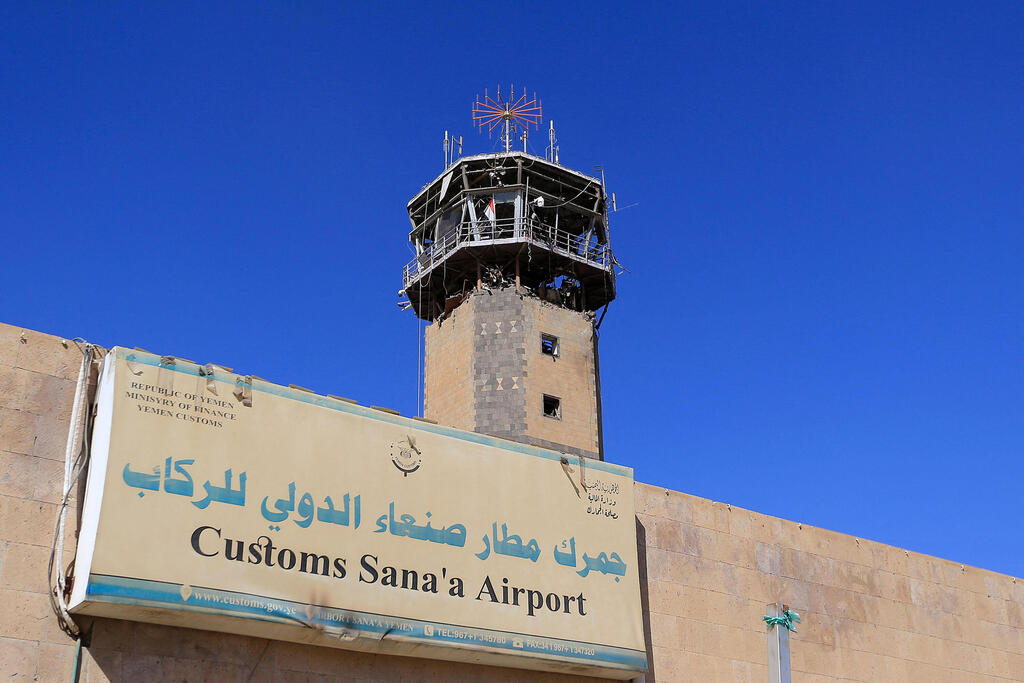The Israeli Air Force struck multiple Houthi targets in Yemen for the second time in less than 24 hours, the IDF announced Tuesday, including a major airstrike that reportedly shut down Sanaa’s main airport. A source in Sanaa told Ynet: "The whole sky is smoke, there is an atmosphere of panic and fear."
According to the IDF, the strike destroyed infrastructure used by the Iran-backed Houthi militia at Sanaa International Airport, effectively rendering it inoperable. The IDF said the airport was used to transfer weapons and operatives and was routinely operated by the Houthis for terror-related activity.
The IDF further stated that the Sanaa airport strike followed a similar attack on the Hodeidah port the previous night, which it also accused the Houthis of using to support terror operations. “This is another example of how the Houthi terror organization exploits civilian infrastructure for terrorism,” the statement read.
In addition to the airport, Israeli jets struck several major power stations in the Sanaa area. The military said the Houthis used these sites to support their terror network, calling it further evidence of the regime's exploitation of civilian resources and the Yemeni population.
The Air Force also struck the Al-Amran cement factory, located north of Sanaa, which Israel says is a key economic and military asset used by the Houthis to build tunnels and military infrastructure. “Damaging this facility hits the terror regime’s economy and its military buildup,” the IDF added.
The military emphasized that the operation was approved by the Air Force commander and the IDF chief of staff, and the strikes were “precisely targeted” and conducted with measures taken to minimize civilian harm.
The IDF accused the Houthis of operating under Iranian direction and funding over the past year and a half, aiming to attack Israel and its allies, destabilize the region and disrupt global maritime traffic.
“The IDF remains determined to act forcefully against anyone who poses a threat to the citizens of Israel, at any range necessary,” the statement concluded.
Earlier, the military issued an unprecedented direct warning in Arabic, calling on all individuals near Sanaa International Airport in Yemen to evacuate immediately, citing a potential threat to their safety.
The statement, delivered by IDF Arabic-language spokesperson Col. Avichay Adraee, included a map and a blunt message: “Urgent warning to everyone in the vicinity of Sanaa International Airport: We urge you to evacuate the airport area immediately and to warn others nearby to do the same. Failure to do so endangers your lives.”
Saudi outlet Al Hadath reported that “Israeli warplanes have entered Yemeni airspace.”
Earlier, Saudi network Al Arabiya cited regional sources estimating that “an airstrike on the airport is expected within the hour,” and reported that airport staff had begun evacuating.
Airstrikes hit Yemeni capital of Sanaa
Al Hadath also cited sources saying that roads leading to the airport had been closed and that “panic has spread among residents and shop workers in the vicinity of the airfield,” along with significant movement of people fleeing the area.
The warning comes two days after a missile launched from Yemen by Iran-backed Houthi forces landed near Ben Gurion Airport, prompting widespread flight cancellations and heightened security concerns. In response, the Israeli Air Force launched a powerful retaliatory strike against Houthi targets, including the port of Hodeidah and a cement plant in the city of Bajil.
The military released on Tuesday afternoon new footage of Monday's airstrikes in Yemen, including target maps and in-flight refueling of fighter jets. “The IDF is determined to continue striking forcefully against anyone who poses a threat to the citizens and residents of the State of Israel, at any range required,” said the military spokesperson.
Following the strike, the IDF confirmed that around 20 fighter jets attacked dozens of targets linked to the Houthi regime in and around the port city of Hodeidah—over 1,200 miles from Israeli territory. According to the military, the strike came in response to repeated Houthi attacks on Israel, including the launch of surface-to-surface missiles and drones.
IDF airstrikes in Yemen
(Video: IDF)
The terror infrastructure hit at the Hodeidah port, he said, serves as a major source of income for the Houthi regime. “The Hodeidah port is used to transfer Iranian weapons, military equipment, and other materials for terror purposes,” the IDF said. It added that another target was a concrete factory in Bajil, east of Hodeidah, which the Houthis use as a key economic asset and for building tunnels and military infrastructure. “Striking this facility directly impacts the regime’s economy and military buildup,” the spokesperson added.
Get the Ynetnews app on your smartphone: Google Play: https://bit.ly/4eJ37pE | Apple App Store: https://bit.ly/3ZL7iNv
The IDF’s decision to issue a public evacuation alert in Arabic—directly addressing civilians in Yemen—is highly unusual and underscores the escalating tensions between Israel and the Houthis. It also suggests further military action may be imminent.
Israeli officials, including Prime Minister Benjamin Netanyahu, have repeatedly warned that continued Houthi attacks will not go unanswered.



